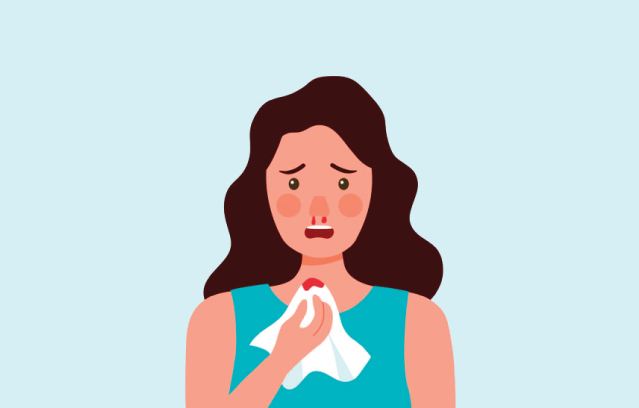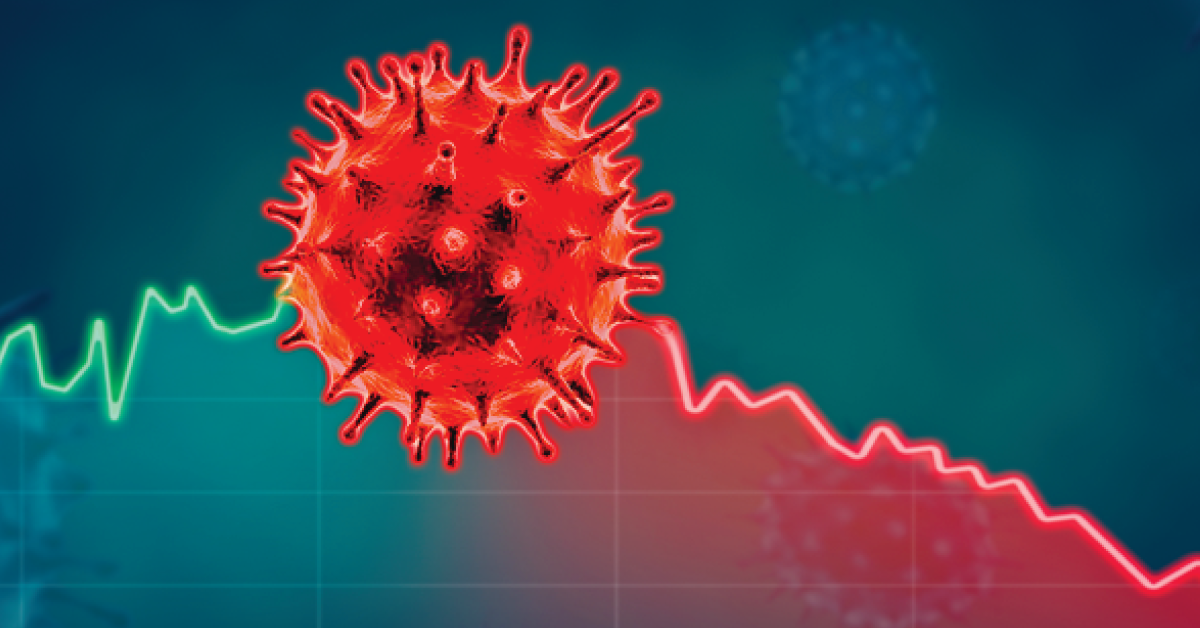
The nose is the most ignored part of the body. It becomes the most concerning part when the blood starts gushing. The nose is the structure which easily gets injured. The position and the amount of blood supply are responsible for epistaxis (nosebleeds). Moreover, little areas which have a supply of five blood vessels can easily rupture. Most of the cases are not alarming and can be controlled at home. There are two types of nosebleeds: anterior and posterior nosebleeds. Anterior nosebleeds are the most common type of nosebleeds. This is caused due to rupture of small blood capillaries present superficially. Posterior nosebleeds are caused due to rupture of deep arteries. This is most common in adults with high blood pressure.
What are the common causes of nosebleeds?
There are many causes of acute nosebleeds.
is the first. This could be due to fracture or damage to soft tissues. Cheekbone fracture can also lead to brisk nosebleeds. Infective conditions like rhinitis can be a cause of frequent nosebleeds. Nosebleeds can be due to higher blood pressure too. The other factor responsible for the nosebleeds is position and blood supply. All the large blood vessels are close to the lining of the nose and thus easy injury. Another two most common causes are dry air and nose picking. Dry nasal chambers can lead to nose bleeding. Other causes include :
Allergies: Any allergen can stimulate the mast cells to release histamine, which affects the blood flow in general and thus might lead to nosebleeds.
Acute sinusitis: The sinuses are the spaces around the nose which get filled with mucus leading to congestion. This obstructs breathing.
Aspirin: The use of aspirin can lead to severe nosebleeds. Aspirin has a blood thinning property which can prolong the bleeding. Other blood thinners like warfarin etc can also prolong the bleeding.
Septum deviated: Septum is the thin wall that is between your nose. Any deviation can lead to nosebleeds.
Common cold: It is the most common infection in humans. This is usually harmless but can turn into other severe conditions which can be only treated by your general physician.
Trauma to the nose: Any major injury to the nose can lead to nosebleeds. This can be an emergency condition. Visit an otolaryngologist.
Chronic sinusitis: When your sinuses are swollen for more than 3 months, even after undergoing treatment can lead to nose bleeding.
Myths around nosebleeds?
For ages, there have been a lot of medical assumptions about nosebleeds. It was believed that this indicates a girl’s period. Another assumption was related to bodily imbalance. Many stories are trying to explain nosebleeds. Many gynaecologists consider it a magical indicator of fertility. Additionally, periods and nosebleeds were considered the same.
Many people didn’t see nosebleeds as a bad thing. They considered it to be medicinal. It was thought that to stop heavy bleeding from some other parts, nosebleeds could help. Not only this, many believed that tadpoles and other things could cure it. Apart from all these mythological theories, there are myths related to first aid related to nose bleeding.
Don’t bend backwards, bend forward!
This is a major misconception about the first aid of nosebleeds. This is a debatable issue but medical professionals have cleared the air. So if you are pinching your nose and tilting your head backwards, it’s a big no! The basic physiology regarding this is that our food passage and airway passage are the same. If you tilt your head backwards then the blood can enter either of them. For instance, if it enters your throat, you might feel like puking as it will taste bad. On the other hand, if blood enters your airways, it can lead to choking. It’s a fatal condition. So always pinch your nose and bend forward which will prevent further nosebleeds. Take a towel and keep it near your nose. The bleeding will stop within 10-15mins. If not, consult your general physician.
Pinching your nose well is important. Generally, the bleeding is due to small vessels in the cartilage. When we pinch, the blood moves slowly and finally stops.
Don’t put a cotton ball or towel
Yes, it’s a big no! Don’t put a cotton ball in your nasal passage. This will not stop the bleeding, instead, it exaggerates the nosebleeds. This can also irritate your nasal passage as well.
Don’t eat spicy food!
Just after your nosebleeds stop, avoid spicy stuff. Spices are vasodilators, they dilate the vessels. The dilation can restart the bleeding and thus cause more damage.
Nosebleeds in kids and their prevention
The most common cause of nose bleeding in children is nose picking. Kids often put their fingers in their noses. This leads to the rupture of small vessels and thus nosebleeds. According to an otolaryngologist, most of the time the nosebleeds are not severe. The most traumatic thing about being a parent is repeated nosebleeds. If your child is having this condition consult a general physician immediately.
As a parent you can do this if your child is having a bleeding nose:
-Don’t panic, try to stay calm.
-Make your child sit in a comfortable position and bend his head a little forward.
-Pinch the nose from the front part by using a soft cloth.
-In case the bleeding is not stopping, don’t bend backwards as this can lead to gasping.
-Keep the pressure on the tip of the nose for at least 10 mins otherwise bleeding may start again.
-Stop pressing the nose if the nosebleeds stop.
-Make your child rest for a while. Avoid rough play and too much activity, to avoid recurrence.
-You should consult your general physician if it is often
-Talk to a general physician if your child is on a new medications
-Check the nose of your child for some solid mass. In case you find something, visit your general physician.
-Conditions like dizziness and heavy bleeding are considered to be an emergency.
-In case bleeding is not stopping after 10 mins, visit your general physician.
Most of the parents ask an otolaryngologist how we can prevent nosebleeds?
- Trim the nails timely as the most common cause of nosebleeds is pricking of the nose.
- Dry air is another reason for frequent nosebleeds. To prevent this make sure that the nasal cavity is moist. You can use creams and gels.
- If your child is involved in vigorous activity, take proper measures like protective athletic wear.
Is nosebleeds a sign of danger?
Nosebleeds are generally not serious but frequency can be a cause of concern. According to doctors if you’re having a feeling of dizziness or headache following the nosebleeds, make an immediate appointment. Blood thinners can also be a cause of concern. It is found that people who are on aspirin might often experience nosebleeds. It is also found that people might be suffering from some underlying cancer or bleeding disorders. Any signs of vomiting or gasping could indicate a serious condition. You should be examined by the ENT specialist well for frequent bleeding to avoid nasal polyps or nasal growths. Difficulty in gagging should be told to your general physician as this could indicate some underlying problem or obstruction. Don’t prefer to go to an ENT specialist by yourself if the bleeding is not stopping, instead book an online consultation for better first aid.

